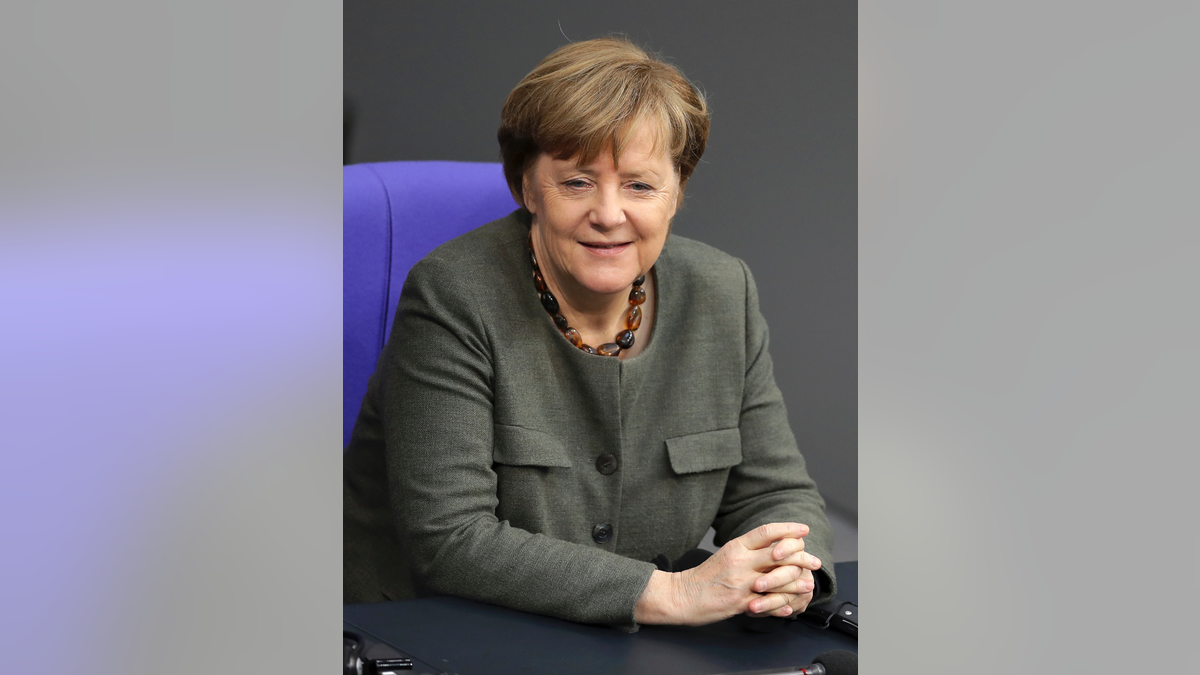
BERLIN – German Chancellor Angela Merkel is starting her fourth term with a much-changed top team in which only three members of the new 16-member Cabinet keep their old jobs. There are new faces in some key positions: the finance, foreign, economy and interior ministries.
CHANCELLOR ANGELA MERKEL, 63
Germany's leader since 2005, Merkel is embarking on a fourth term that could see her equal the 16-year tenure of one-time mentor Helmut Kohl.
The conservative has stamped her mark on Germany's political center ground with a pragmatic approach and willingness to adopt liberal competitors' ideas, and has often reassured Germans by convincing them that she is on top of complicated crises. She led a hard-nosed response to the eurozone debt crisis and allowed in large numbers of migrants in 2015, a move that was divisive both at home and abroad.
In this term, Merkel will have to grapple with a possible Europe-U.S. trade war, find common ground with France and others on shaping the European Union's future, and manage a potentially fragile coalition at home.
___
FINANCE MINISTER OLAF SCHOLZ, 59
Merkel's new vice chancellor, center-left Social Democrat Scholz takes over the purse strings held for eight years by steely conservative Wolfgang Schaeuble.
The sober and self-confident Scholz, who was Merkel's labor minister during the 2008 financial crisis and then the mayor of prosperous Hamburg, is on the right of his party and an advocate of balanced budgets.
Scholz stresses his party's "very clear pro-European position" and the need for consensus with other EU countries on eurozone reform, but his arrival doesn't necessarily herald any major change of direction.
___
FOREIGN MINISTER HEIKO MAAS, 51
Germany's new chief diplomat is a newcomer to foreign policy, but as justice minister was a high-profile figure in Merkel's outgoing government. Maas is best known for pushing through a controversial law aimed at cracking down on hate speech on social networks.
He has been particularly outspoken in criticizing the nationalist, anti-migrant Alternative for Germany, which is now the biggest opposition party.
Outgoing Foreign Minister Sigmar Gabriel, a fellow Social Democrat who over the past year led Germany's response to tensions with NATO ally Turkey, says Maas will do an "excellent" job.
___
ECONOMY MINISTER PETER ALTMAIER, 59
Altmaier, a conservative, is close to Merkel and has been her chief of staff since 2013. He takes over the ministry that oversees Germany's trade relations and is in charge of managing the country's switch from nuclear and coal to renewable energy.
He has served in a succession of party and government jobs as a loyal aide to Merkel, and has previous experience of managing energy policy from a stint as environment minister.
___
INTERIOR MINISTER HORST SEEHOFER, 68
An often-awkward ally to Merkel, the leader of Bavaria's Christian Social Union party becomes Germany's top security official.
Seehofer — whose party is traditionally a touch further right than Merkel's — was one of the chancellor's most prominent critics during the 2015 migrant influx, though the pair have since buried the hatchet.
The outgoing Bavarian governor, who has previously served as federal health and agriculture minister, now takes on the task of trying to keep a lid on migrant arrivals. He has promised a "master plan" to speed up asylum procedures and increase deportations of rejected applicants.
